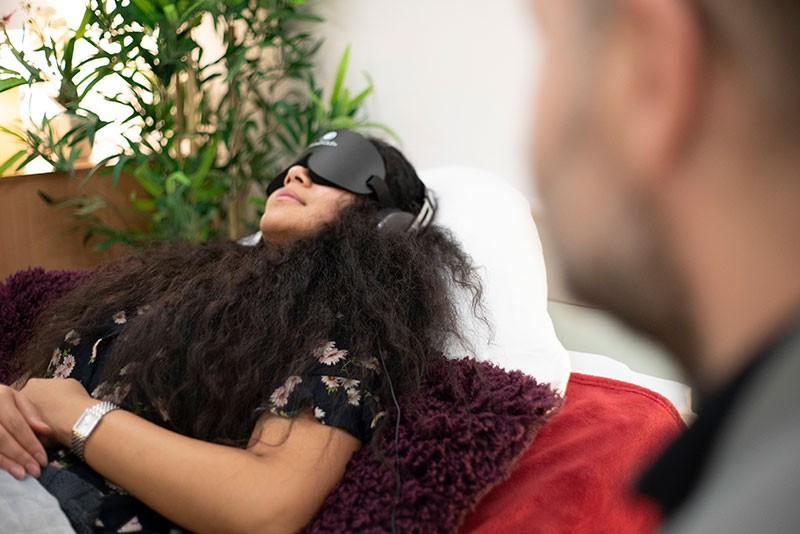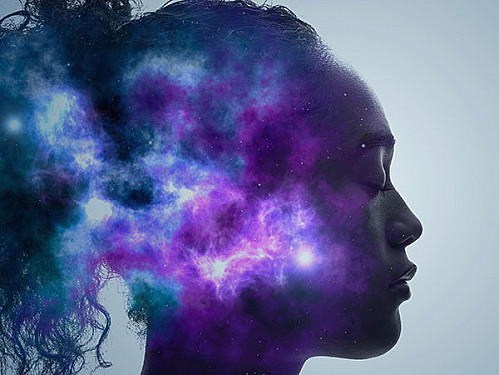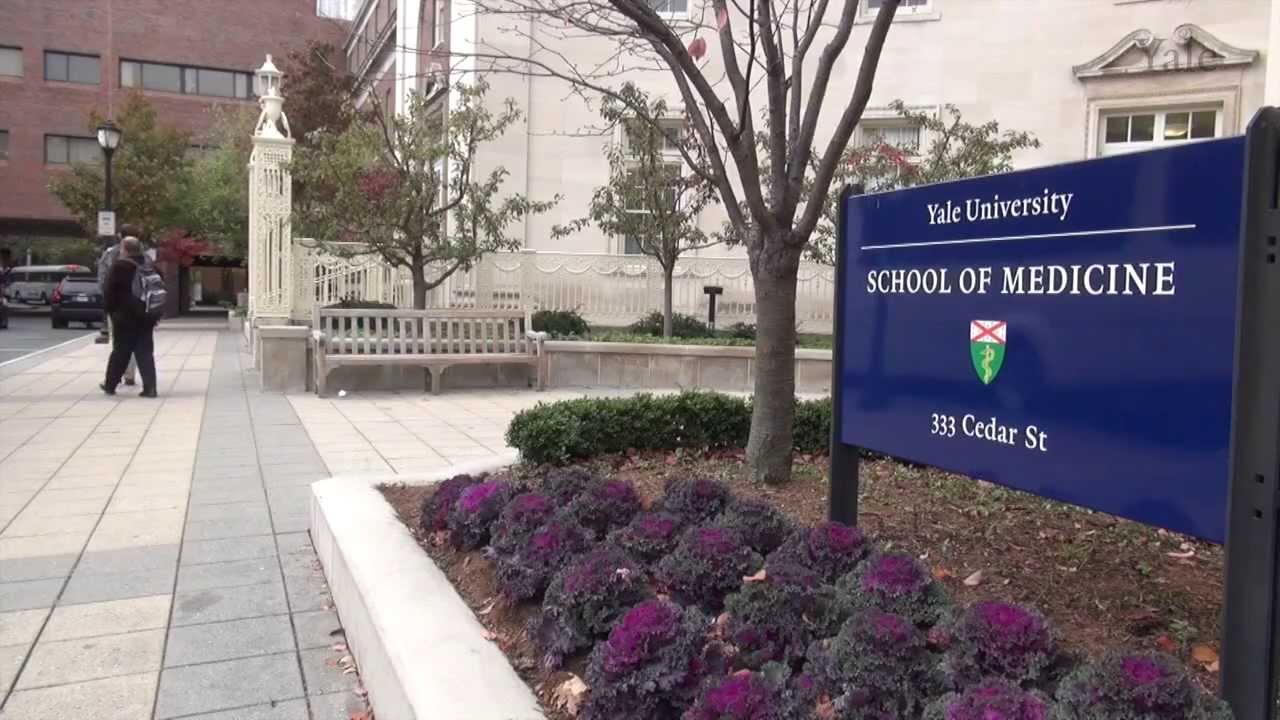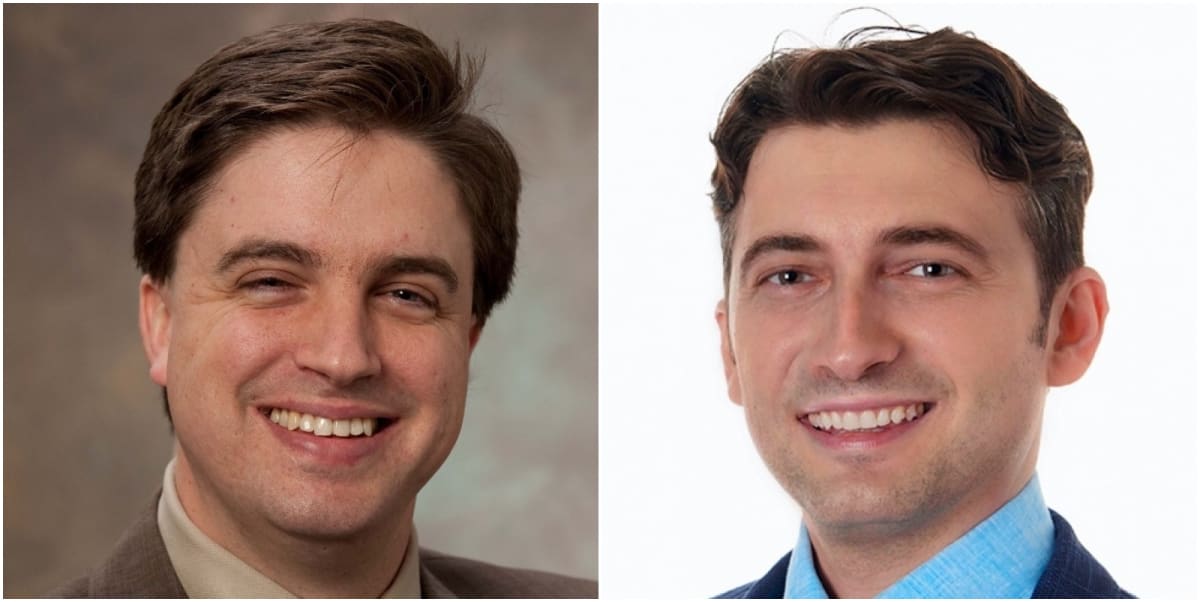"The pharmaceutical industry is constantly cutting research into psychiatric medicines, and the drug development pipeline for psychiatric drugs is almost empty,” French psychiatrist Florence Thibaut
lamented in 2019, pointing to just 40 new drugs for psychiatric conditions launched since 1980.
Meanwhile, the FDA approved 50 new drugs for a variety of medical conditions in 2021 alone and averages 40 new approvals per year. With the coming “precision medicine” revolution, the future looks even more promising because those drugs are being designed with genetic insight to be more effective, less toxic, and better for the individual. Mental health has largely been left out of this revolution, though
there are signs that may be changing.
If there is one bright spot on the horizon for psychopharmacology, then it is this: Psychedelic drugs are breaking through into mainstream psychiatry. A phase 2 clinical trial of LSD for adult attention-deficit/hyperactivity disorder (ADHD) was launched four months ago in Europe. MAPS has completed phase 3 clinical trials showing that MDMA is effective for post-traumatic stress disorder (PTSD) when combined with psychotherapy.
The state of Oregon has promised to begin licensing guides—who don’t need to be medical providers—to offer in-office psychedelic sessions starting January 2023, and municipalities in California and Colorado have also decriminalized certain Schedule I substances (the U.S. Drug Enforcement Agency designation for drugs with a high potential for abuse that have no currently accepted medical use). Denver, for instance, has decriminalized psilocybin.
In a 2021 webinar on psychedelics, Oregon Health & Science University psychiatrist Chris Stauffer described an inbox crammed with requests from potential patients to join his next research trial. Letters written to psychiatric journals alternately disparage consumers’ desire for a quick fix and excitedly discuss the therapeutic possibility of that very thing.
Yet, some psychiatrists are cautious about the basic legitimacy of psychedelics, and few current practitioners have experience prescribing them. And while experts agree psychedelics are set to change psychiatry, they disagree about how it will happen. Some think they will become part of the doctor-patient interaction, with psychedelics prescribed by a psychiatrist taken solely in the presence of a mental health therapist or a trained guide. Others hope psychedelics could encourage a new, more holistic way of practicing psychiatry, one that gets back to the profession’s roots and away from 15-minute medication visits.
The role of psychiatrists in a future in which psychedelics are not only legalized as pharmaceuticals, but potentially as substances decriminalized for everyday use shows the potential for a small but specialized role for psychiatrists.
“Perhaps psychedelics are a bridge between psychopharmacology and psychotherapy,” said North Carolina psychiatrist Michael Mithoefer at a
presentation during the 2021 American Psychiatric Association meeting. Mithoefer is a senior medical director for the MAPS Public Benefit Corporation, a subsidiary of MAPS, and he has been treating psychological trauma for more than three decades. In his presentation, he beamed as he described successful trials of MDMA coupled with psychotherapy for PTSD. It was one of the studies he’s conducted with MAPS, and he says the effectiveness of MDMA is not due to the drug alone. “Psychotherapy is a very important component of it,” he said in the same presentation.
“People are always asking, if this works, why does it work?” Mithoefer said.
“Of course, we don’t know the answer to that for any psychiatric drugs in a complete way, but we do know a lot about what MDMA does.” As an empathy-booster, or empathogenic psychedelic, MDMA decreases activity in the amygdala, and boosts prefrontal cortex activity, helping people avoid becoming flooded by fear and anxiety when processing trauma.
Trickle-down enzymatics
But even if we can better understand the mechanism behind, say, MDMA as a trauma treatment compared to current, FDA-approved anti-anxiety and antidepressant drugs, we’re still a long way from understanding who these medications can best help—and how. Even the spate of clinical trials currently underway has yet to broadly test psychedelics for a range of conditions; most are necessarily aimed at proving the effectiveness of one medicine for one condition, not testing the best drug for the job.
The question of why some drugs work for some people but not for others—or why some people can tolerate their side effects while others can’t—comes down, in part, to genetics.
DNA variations in one gene or another change the way people metabolize any drug and experience its side effects. About half of people with major depressive disorder don’t respond, or show a limited response, to their first medication. That’s where psychiatrists typically come in, helping people with various mental illnesses sift through available treatment options.
Early genetic testing for antidepressants studied genes that govern cytochrome P450 enzymes, a primary human protein that metabolizes and clears many drugs from your system, including some common SSRI antidepressants. More recent studies have explored genes related to pharmacodynamics and pharmacokinetics, the mechanisms behind and movement of drugs within the body, and their uptake into the brain. The recent psychedelic boom—and demand for research that could back up psychedelics as effective psychopharmaceuticals—has brought research attention to the pharmacogenetics of substances like LSD, too.
Researchers led by Matthias Liechti have shown
genetic differences account for variance in the way LSD
and MDMA are metabolized—due largely to the same cytochrome P450 enzymes that make some antidepressants less effective. It comes down to metabolism. Genetic variants of these enzymes mean some people will metabolize LSD more slowly, even at the same dose, leading to greater mental shifts that last longer than a person who metabolizes LSD quickly. Understanding these genes could help future clinicians prescribe an appropriate dose to each individual, Liechti says, though a cheaper alternative is simply to start everyone on the lowest effective dose.
“Genetic testing does not have to be used generally. It is of value in specific situations if there is no response or an increased response,” Liechti says. And genetics are just one predictor; tests like measuring LSD (or antidepressant) levels in the blood after a predetermined dose are a lower-cost option.
Even if genetic testing advances and becomes the norm, it’s not clear there will be a role for psychiatrists. One specialized genetic test, GeneSight, is marketed as a test for how people will respond to select medications for depression, anxiety, and ADHD to patients who are struggling to identify the best medication, who aren’t responding as predicted to current medication, or who experience harmful side effects—or even elderly people with liver problems.
The company’s website boasts 1.5 million tests sold so far, and advertises them to clinicians as a pharmacogenetic answer to a question that has long plagued psychiatrists: Which medication to choose, and at what dose? Patients take the test, a simple cheek swab, at home, but results are released only to the clinician who has ordered the test. Still, Liechti says it doesn’t have to be a psychiatrist. Liechti recommends a primary care provider, paired with a clinical pharmacologist. GeneSight allows prescribers from any specialty, but has pharmacologists and other clinicians on staff for consultation. A GeneSight spokesperson, Sarah DeDiemar, relayed that company leaders are following psychedelic research advances too, including potential psychiatric applications of psilocybin and MDMA.
“There is no need to do genetic testing either for antidepressants and even less for psychedelics,” Liechti says.
“Genetics may help [with] dosing, but only in special situations and I do not think such testing is cost-effective in most situations.”
Do psychedelics even need prescribers?
For the psychedelics startups hoping to profit from promising clinical trials, psychiatrists play a key role, not only as current researchers but potential future prescribers. It’s a role that not everyone finds comforting—or necessary.
Ismail Ali (he/they), MAPS’ director of policy and advocacy, believes there’s a place for psychiatrists for a subset of people for whom a physician’s prescription is the only palatable means of accessing psychedelics. That’s hardly the majority of users. But they and others share a concern that over-medicalizing psychedelics as psychopharmaceuticals could strip these medicines of cultural, spiritual, and other inherent values.
“There are plenty of cases in which a psychiatrist is absolutely not needed,” Ali says.
“But I wouldn’t say that there’s no role for them.” Shifting psychedelics into a strict medical model can also be confusing to consumers, they add.
While pharmaceuticals require a high standard (a physician consultation and diagnosis) for a prescription, decriminalization efforts establish a kind of floor, allowing a wide swath of people to participate. But sometimes, legalization causes confusion, too.
“I’m worried about people thinking they’re getting medical care when they’re getting totally legitimate, awesome psilocybin services that aren’t actually medical care,” Ali says.
Katie Hendy, a medical anthropologist who researched the development of psychedelics as prescription medications in collaboration with MAPS, says that shifting psychedelics into the U.S. medical model also threatens to cut off access to marginalized groups, including people without access to health insurance or a psychiatrist, or even people who are simply undiagnosed.
“Many people who use psychedelics are not necessarily doing it for the treatment of a specific indication,” Ali says, adding that the therapeutic benefits those users report, whether symptom management or otherwise, are secondary effects. And despite potential benefits from psychiatric use for people with specific diagnoses, they also remain concerned about access for the broader population.
Psychiatrists are curious, but cautious
Psychiatrist Rakesh Jain researches the link between psychedelic use and wellness and has led presentations for mental health clinicians and psychiatrists who are cautious about their role in a psychedelic-legal world post-FDA approval, which Jain expects to happen in only 16 to 24 months.
“The studies are almost finished—phase 3 studies. They’re all breakthrough status and they all have rapid review by the FDA,” he says.
Like Ali, Jain believes the best use of psychedelics is parallel—and legal—paths for clinical and social, cultural, or recreational use. He doesn’t agree with characterizing the field of psychiatry as being anti-psychedelic.
“It is hesitant,” he says,
“which is not the same thing.” He believes the fallout of anti-drug marketing campaigns and subsequent research shut-downs are still impacting psychiatrists’ attitudes.
“Most psychiatrists today, including myself, came of age when we were told that psychedelics are drugs. ‘This is your brain—this is your brain on drugs,’” Jain says, recalling the infamous 1980s anti-narcotic ad campaign from the Partnership for a Drug-Free America. But he also says that psychiatrists, patients, and insurers alike are more than ready for more effective psychiatric drugs.
“PTSD, especially when it’s refractory, is very expensive to the insurance plan,” Jain says. He believes that health insurance companies will want to cover psychedelic therapy once the research shows it can be effective.
“This actually would be for humanistic reasons, but also for all the right cost-saving reasons,” he says.
Prescribers and patients dream big
“I have a feeling there’ll be a lot of people in psychiatry that are going to really wait until, if psilocybin or MDMA are approved, they’ve been out for a while,” says Hendy. She points to the
controversy over esketamine, a pricey nasal spray containing a synthetic form of ketamine. It was approved by the FDA for treatment-resistant depression in 2019, though some psychiatrists have
raised concerns about the deaths of six patients (including three by suicide) during trials and lackluster data on the spray’s effectiveness. Jain says suicidal ideation is something to watch with psychedelics but believes esketamine has been unfairly sensationalized after meeting stringent FDA criteria, and is already saving lives.
More recent trials have shown safe and effective uses for psychedelics; the more likely negative outcomes, it seems, are that a particular psychedelic simply might not work for a given ailment. Could psychiatrists become mere prescription writers in a psychedelic future?
“All psychiatry treatments work better with psychotherapy,” says Dan Karlin, chief medical officer of MindMed, a New York-based psychedelic startup that has collaborated with Liechti. This is backed up by MAPS’ clinical trials. And Jain has a quicker response:
“No chance.” Karlin dreams that psychedelics might bring new energy for depth psychotherapy, a long-term psychoanalytic therapy (think Freud but with a groovy soundtrack) provided by psychiatrists, as psychedelics usher in a new era of psychiatric care—one that demands a holistic approach. But it’s a model insurance companies rarely support, in part due to its high cost.
Currently, for psychiatrists, “the only way they can make a living being supported by insurance is to do short med management visits,” Karlin says.
“So some of our strongest tools have been relegated to some of our least trained providers, while our highest rated providers are prescribing SSRIs,” that are sometimes barely more effective than placebos and all too often do not work at all. And while Jain says psychiatrists are still more likely to partner with mental health therapists, counselors, and psychologists for cost-effective therapy, he too hopes psychedelics can broaden psychiatry’s scope.
In the meantime, psychiatrists, who are the de facto prescribers of medication for mental health, wait watchfully for the latest data and the promise of FDA approval, sifting through an ever-increasing pile of marketing claims from psychedelic entrepreneurs.
“There are a lot of companies out there making claims about the mechanism by which psychedelics create change and healing. We don’t know any of that to be true,” Karlin says.
But what we do know is that some specific functions of psychedelics, like MDMA for PTSD, appear in clinical trials to work not only substantially better than standard therapies but potentially transformationally. In one study, a participant left the trial, but not due to side effects. The participant said their PTSD had been cured and decided not to return for additional therapy sessions.
“I do think psychedelics may be bigger than medicine,” Jain says, referring to the potential for wellness-based applications of psychedelics, and a continuation of centuries-old Indigenous practices.
“And I’m glad.”







